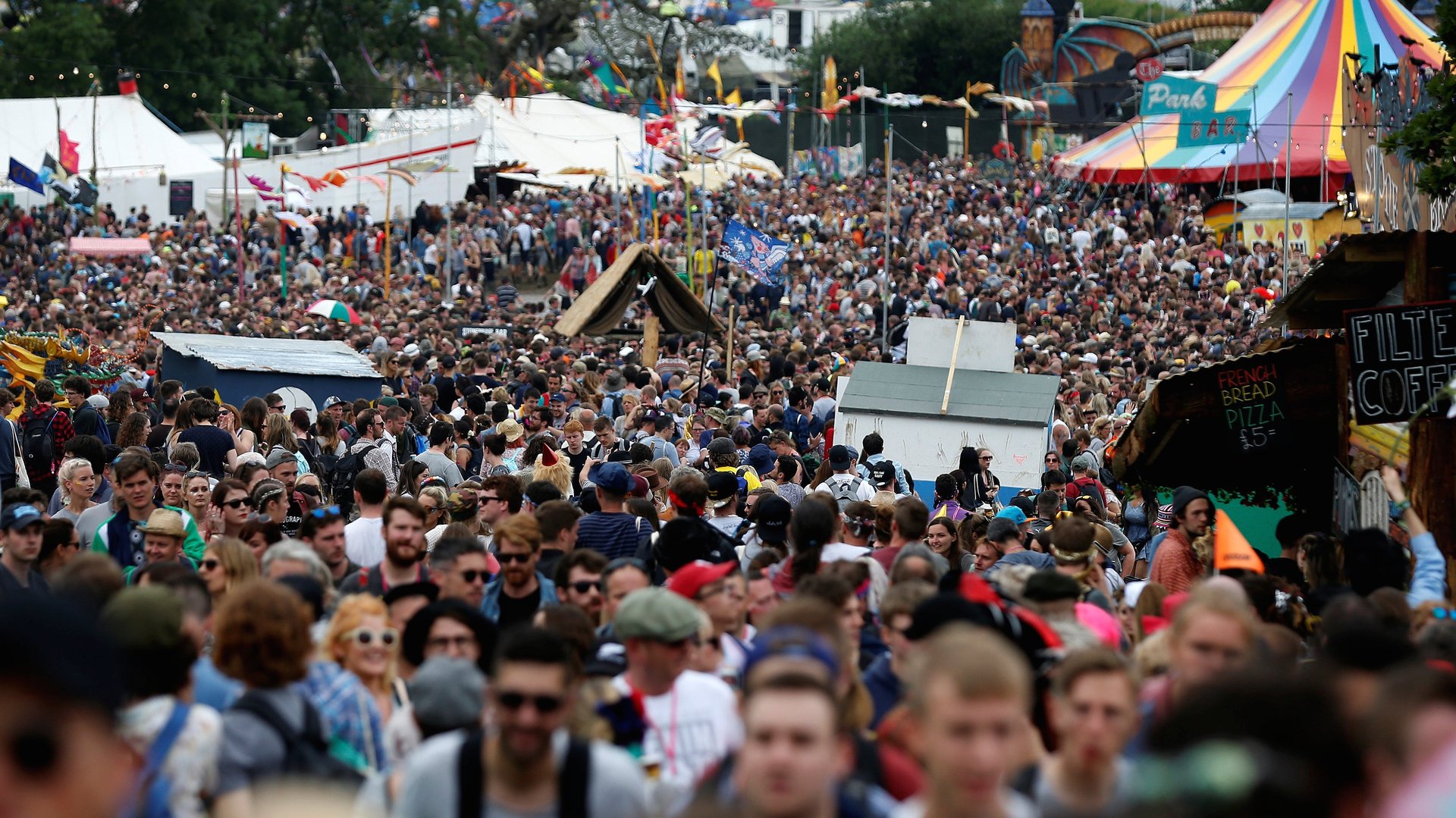Rape at international music festivals is a “hideous” problem that isn’t going away
Earlier in July, an 18-year-old girl was raped at popular Scottish music festival T in the Park. The incident isn’t the first sexual assault at the annual event. Earlier this year, a 43-year-old security guard admitted in a UK court that he had groped and repeatedly kissed a “terrified” 17-year-old girl at the same concert last year. A teenage boy was accused of exposing himself and trying to rape a girl in 2012.


Earlier in July, an 18-year-old girl was raped at popular Scottish music festival T in the Park. The incident isn’t the first sexual assault at the annual event. Earlier this year, a 43-year-old security guard admitted in a UK court that he had groped and repeatedly kissed a “terrified” 17-year-old girl at the same concert last year. A teenage boy was accused of exposing himself and trying to rape a girl in 2012.
And this is just one music festival in Scotland.
Around the world, female concertgoers have been subjected to sexual assault and harassment for decades. And organizers don’t seem too worried about it. In one of the most dramatic examples in recent memory, dozens of assaults were reported at the Bravalla Festival and the Putte I Parken festival in Sweden during the first weekend in July. Most of the victims were teenagers; the youngest was reportedly 12 years old. In nearby Denmark, another five alleged assaults were reported at the annual Roskilde rock festival.
These statistics are depressing, but they don’t shock me. A year ago, I looked into sexual assault and rape at festivals, and found that there had been a string of reported incidents over the past few years. In the UK, stories included the gang rape of a woman who was walking from her campsite to the toilet at Latitude in Suffolk in 2010, a male nurse who was convicted of assaulting two unconscious women in the medical tent at Oxfordshire festival Wilderness in 2013 and multiple reported rapes at Secret Garden Party in Huntingdon and V Festival in Essex last year.
In America, a rape was reported at Electric Zoo in 2014, and there were two alleged rapes at Made in America in 2013. Then there was the blog claiming a 19-year-old girl attending Burning Man in 2012 has been strangled, drugged, and raped. The blog was written by the alleged victim’s mother, who also attended the festival.
The pattern is clear, and yet year after year very little is being done to keep women safer. When I approached festivals last year about safety precautions, I was disappointed by the apparent lack of concern. The PR for one major festival couldn’t even tell me what sexual assault training their security team had. Is it any surprise this blasé attitude has filtered into the crowds as well? Sexual assault is still being treated as a joke by attendees. Remember the Coachella concertgoer who wore an “eat, sleep, rape, repeat” last April?
With festivals unable to unwilling to make significant changes, outside organizations have been trying to fill the gap. A local council offers consent education at Bestival on the Isle of Wight, and the Isle of Wight festival. Meanwhile, an anti-groping campaign group called Girls Against are fighting for better security at events. The group was formed by teenager Hannah Camilleri after she was herself assaulted at a gig. “I was at the front near the barrier,” Camilleri told me. “This guy put his hands on my waist and when I tried to push him away, he pushed me into the barrier.”
Camilleri says a lack of reporting has allowed festivals to claim ignorance about the extent of the problem. But this month should be a wake-up call. After hearing about the assaults at Bravalla in Sweden, British group Mumford & Sons vowed not to come back until the festival had improved security measures:
“We’re gutted by these hideous reports. We won’t play at this festival again until we’ve had assurances from the police and organisers that they’re doing something to combat what appears to be a disgustingly high rate of reported sexual violence.”
And yet the band’s comments contrasted sharply with the words of Carsten Andersen, a police officer in Denmark who reportedly said the five Roskilde assaults were ”nothing out of the ordinary at such a big event, although every single case is too much.” Has groping and harassment become so common that it’s viewed as the status quo?
What’s even scarier is the rhetoric being used around the Scandinavian attacks. Rather than ask how festivals could better protect their female attendees, discussion focused on whether the attackers were Muslim immigrants. Event organizers may think pushing responsibility for the attacks onto a minority group will deflect public blame, but such transparent and prejudiced strategies can only last so long.
Ultimately, it is time for festivals around the world to take responsibility for both the safety and attitudes of their attendees. Festival organizers need to condemn all forms of harassment, both on social media and within the festival itself. And they need to hire security personnel trained specifically to handle these types of cases. By remaining in denial, they merely ensure more women will suffer. Yes, the show will go on either way, but at what cost?